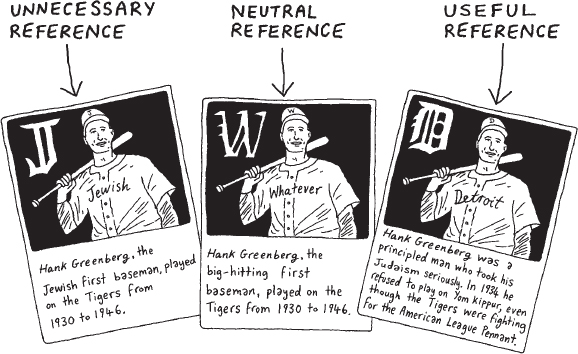Steer Clear of Unnecessary References to Ethnicity, Religion, Gender, or Sexuality
Printed Page 363
When a person’s ethnicity, religion, gender, or sexuality is not relevant to a point you are making, there’s no need to mention it in your speech. Including it can only hurt your credibility. For instance, if you say “the Chinese American judge,” “the Jewish baseball player,” “the male first-grade teacher,” or “the lesbian CEO,” listeners may believe that you find it odd for a judge to be Chinese American, a baseball player to be Jewish, a man to be a first-grade teacher, or a lesbian to run a company. On the other hand, in an informative speech about baseball great Jackie Robinson, you would probably want to refer to his African American heritage. Why? Robinson was subjected to many forms of racism and broke the “color barrier” when he joined the Brooklyn Dodgers in 1947. His enduring legacy stems just as much from his experiences as an African American as it does from his talent as a ballplayer. Thus, it would be appropriate and even necessary to acknowledge his race during that speech.
